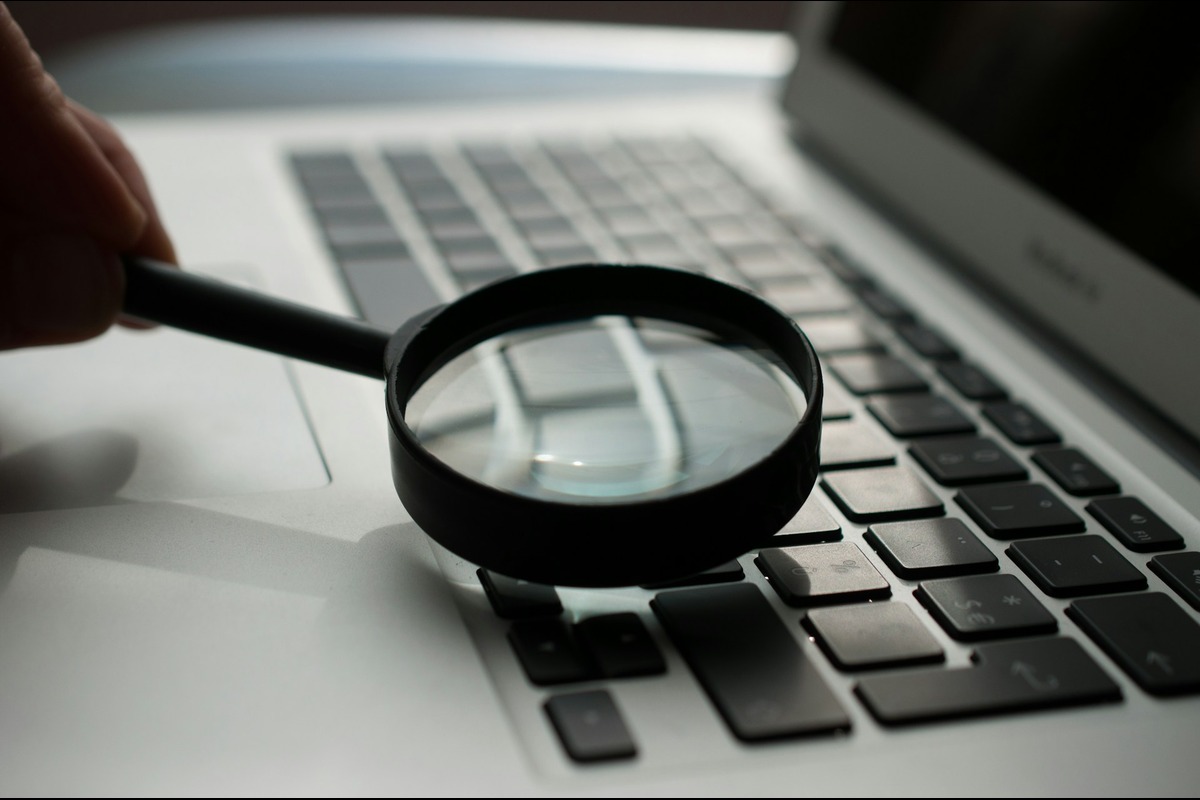Have you ever encountered a strange number like 185,63,2253,200 and wondered what it really means? It may seem like just another Internet Protocol (IP) address, but there’s more to it than meets the eye. In the digital world, every IP address plays an important role in communication between devices. But sometimes a seemingly ordinary address can actually lead to confusion or even risk. Let’s dive deeper and discuss what this special IP address is, why it’s important to understand it, and how it fits into the bigger picture of internet security and connectivity.
Why did this IP address attract attention?
Nowadays, IP addresses are ubiquitous. Every time you use your phone, open a website, or send an email, your device uses an IP address to connect and communicate. When the address 185.63.2253.200 appeared, many were curious: Was it real? Could it be used? Or should you avoid them?
At first glance, it may seem like a standard IP address. But in reality, you can tell because something is wrong. If you want to understand how the internet works and stay safe online, you need to take a closer look at the meaning of such addresses.
After reading this article, you’ll have a much better understanding of what this IP address is, why it raises questions, and how to use IP addresses wisely in your daily digital life.
What is an IP address and why is it important?
Simply put, an IP address is like the digital home address of your device. It tells other computers where to find your phone, laptop, or any other internet-connected device. Just as your home needs an address for mail, your device needs an IP address to send and receive data.
There are two main types of IP addresses: IPv4, which consists of four sequences of numbers (e.g., 192.168.1.1), and IPv6, which uses longer sequences of characters. Today, most devices still use IPv4. These numbers are used to forward internet traffic and connect users around the world.
So, when you stream a movie, send a message, or visit a website, you are using an IP address in the background. Therefore, understanding them even a little can help you be safer and smarter online.
What makes 185.63.2253.200 look suspicious?
Let’s take a closer look at 185.63.2253.200. At first glance, it may seem like a standard IP address. But there’s a big problem: the number 2253. For IPv4 addresses, each of the four parts (called octets) must be between 0 and 255. This is the rule for every valid IPv4 address.
Since 2253 is significantly greater than 255, this violates the rule. This means that 185.63.2253.200 is invalid. It’s like writing an address with a house number that doesn’t exist. No device could use this IP address to connect to the internet.
It may seem like a small detail, but it’s of great importance for networking, cybersecurity, and data security. Therefore, it’s important to understand what a proper IP address should look like.
How IP Addresses Are Assigned
You might be wondering: Who decides which IP addresses are valid and how they are assigned to people and businesses? This is where organizations like IANA (Internet Assigned Numbers Authority) and RIRs (Regional Internet Registries) come into play. These groups are responsible for the worldwide distribution of IP addresses.
They assign blocks of IP addresses to Internet Service Providers (ISPs), who then distribute them to their customers. When you connect to the internet, your ISP assigns your device a temporary (sometimes permanent) IP address.
The entire system works like a well-planned neighborhood. Each address must be unique and formatted correctly, otherwise devices can’t communicate properly. So, if you see an address like 185.63.2253.200, it quickly becomes clear that it’s fake.
Could it be a mistake or a scam?
Sometimes addresses like 185.63.2253.200 appear by mistake: perhaps someone entered the wrong number or added an extra digit. In other cases, however, these fake addresses can be part of more serious attacks, such as spam emails, phishing links, or dubious websites.
Cybercriminals might use such addresses in fake registrations or deceptive URLs to make something look real even if it isn’t. It’s a simple trick, but it can confuse people or even fool systems that don’t perform careful checking.
That’s why it’s always a good idea to check IP addresses every time you come across one. If something seems strange, for example: If the number is too high, it’s wise to be cautious and investigate further.
The Difference Between Valid and Invalid IP Addresses
Valid IP addresses follow a simple structure. They are made up of four parts, and each part must be a number between 0 and 255. For example, 185.63.225.200 is valid, but 185.63.2253.200 is not.
It’s a bit like a phone number. If you try to call a number with too many digits, it won’t work. The same applies to IP addresses: if the format is incorrect, devices can’t communicate with each other using that address.
Knowing how to identify a valid address can help you avoid errors, protect your data, and even troubleshoot internet problems. It’s a small but extremely important skill in today’s connected world.
Why Fake IP Addresses Can Be Risky
Fake or invalid IP addresses may not work on real devices, but they can still cause problems. Sometimes, scammers use these fake IP addresses to hide their location or trick users into trusting them. It may appear in a suspicious email or in a pop-up window asking you to click on something.
Even if your computer doesn’t connect to that IP address, the link could lead to a dangerous website or be part of a data-stealing scheme. Therefore, invalid addresses can also be part of online fraud or risky behavior.
The best way to protect yourself is to know what to look out for. If an IP address has a number higher than 255 or simply seems strange, it’s a sign you should steer clear or investigate further before trusting it.
Comparing Real and Fake Versions
Let’s take the address 185.63.225.200 as an example of a valid version. This IP address complies with all applicable rules. It consists of four parts, and all numbers are within the permitted range.
According to public records, this IP address is linked to a server in Amsterdam, the Netherlands. It operates from a Tier 3 data center and is known for offering high-speed web hosting, email services, and more. A correctly formatted IP address like this is a good example of what a functional address should look like.
If we compare it to 185.63.2253.200, the difference becomes clear. One is real and works, the other violates basic rules and cannot be used by devices.
Common Myths About IP Addresses
Many people believe that it’s possible to easily hack someone if you know their IP address. But it doesn’t work that way. While IP addresses can reveal general location or ISP information, they don’t provide direct access to your device.
Another myth is that IP addresses never change. In fact, most people use dynamic IP addresses that change frequently depending on the network. Unless you pay for a static IP address, your address will likely change every time you reboot your router.
Some people believe that all IP addresses can be traced. While this is partly true, tracing an IP address only provides an approximate location: not its name or exact address. Therefore, it’s helpful to separate fact from fiction when it comes to IP addresses.
How to Check the Authenticity of an IP Address
If you ever come across an IP address like 185.63.2253.200 and want to know if it’s real, there are simple ways to check. You can use tools like a WHOIS lookup, an IP location checker, or simply numbers. If any part is greater than 255, the address is invalid.
You can also check online databases to see if the IP address is in use. These show who owns the address, where it’s located, and whether it’s active. Many websites offer this service for free, and it only takes a few seconds.
IP address verification gives you more control over your digital security. It’s like reading traffic signs: it helps you avoid taking the wrong path.
Why Understanding IP Addresses Is Important Today
By 2025, as more and more people work, shop, and socialize online, knowing IP addresses will be more important than ever. Whether you want to manage your home Wi-Fi or protect yourself from fraud, a little knowledge goes a long way.
If you can distinguish a valid IP address from a fake one, you’ll be less likely to fall victim to online scams. It also helps when setting up devices or troubleshooting connection issues.
We hope this article helps you understand how a simple number like 185.63.2253.200 can tell you a lot about internet security, structure, and smart digital habits.
How to Protect Your IP Address and Stay Safe
There are some steps you can take to protect your digital identity. First, always use a strong password for your home network. This prevents third parties from tampering with your connection.
Then, install a firewall or VPN to protect your IP address from tracking or attacks. These tools make it difficult for hackers to discover your real address or attack your system.
Keep your software up to date. Many attacks occur through old, unpatched systems. By staying informed and cautious, you protect your data and privacy, something that is important every day on the internet.
Conclusion
Understanding whether 185.63.2253.200 is a real IP address can help us better understand how the internet works. This specific IP address is invalid. This knowledge will help you avoid confusion and even digital risks.
Learning how IP addresses are constructed, assigned, and sometimes misused will help you become smarter and safer in today’s online world. From checking your IP address to protecting your own, every little step counts.
Ready for the next step? Stay curious, protect yourself, and continue learning how the internet really works. Your knowledge is your best defense in the digital age.
(FAQs)
What’s wrong with 185.63.2253.200 as an IP address?
The number 2253 is too high; IPv4 addresses can only use numbers from 0 to 255 in each section.
Can hackers use fake IP addresses like 185.63.2253.200?
Yes, cybercriminals sometimes use fake IP addresses to conceal attacks, deceive users, or confuse security systems.
Is it possible for a fake IP address to appear in your emails or logs?
Of course. Invalid IP addresses often appear in spam emails or fake traffic logs to deceive users.
Can someone hack you just because they know your IP address?
No, not directly, but if your IP address is exposed and your device isn’t adequately secured, it can become a target.
Do fake IP addresses lead to legitimate websites?
Sometimes this is the case: hackers can attach fake IP addresses to redirect links that lead to dangerous or fraudulent websites.










